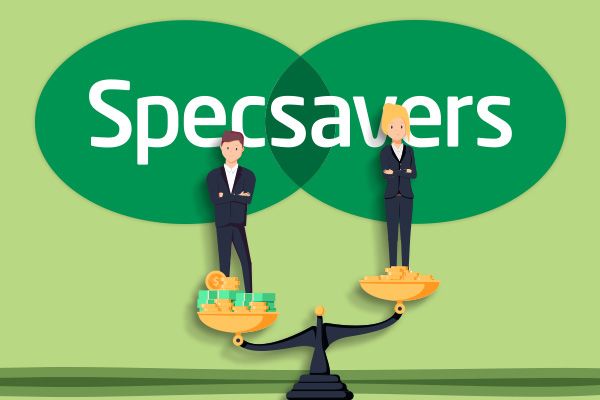

As part of a nationwide deadline for large companies to reveal their gender paygap figures, Specsavers has published a report showing its average female worker earns 41.9% less than the average male worker.
The Guernsey-based international optician put the gap - which is substantially higher than the national average of 18.4% - down to "the difference in the number of men and women in the highest and lowest levels of seniority".
The data came from its UK office network and a manufacture and distribution site - but it said it was now looking to get data for all of its UK, Ireland and Guernsey centres published in the next six months.
It released the report as UK Prime Minister Theresa May set a deadline for midnight on Wednesday 4 April for all UK businesses with more than 250 employees to make the statistics public in a bid to tackle the issue.
The Specsavers report showed that it was one of the 78% of those companies that favours men's wages; with women making up 24% of the higher-paid jobs and 60% of the lower paid jobs.

"The gender pay gaps we have in Specsavers Optical Superstores (our UK support office network) and Vision Labs (one of our manufacturing and distribution sites) are not a result of us paying men and women differently in similar roles - we pay people equally," Paul Marshall, Specsavers UK MD, said.
"The gaps are due to the fact that, for a variety of reasons, we currently have more men in senior roles than women. We are committed to addressing that as we recognise the benefits that a diverse and fully-inclusive culture will bring.
"We have an ongoing programme of activity to champion diversity, including sharing global gender pay data annually, raising awareness of unconscious bias, enhancing our approach to flexible working and reviewing our recruitment processes across the board. We won't close the gaps overnight, but we'll be transparent in our ongoing efforts to do so."

Gender pay gaps have been increasingly in the spotlight since the BBC released the pay of many of its highest earners late last year.
It is not the same as having unequal pay, which would be against the law, as by law, those with the same jobs have to be paid the same wages.
"Our people are, and always will be, at the heart of Specsavers’ success story. We are committed to supporting everyone in our business to be the best they can be, and treating people fairly," Joint Group CEO John Perkins said in the report.

"While the gender pay gaps we have identified are not a result of paying men and women differently in like for like roles, this process has highlighted the difference in the number of men and women in the highest and lowest levels of seniority of two areas of our business. Highlighting the gaps and understanding the root cause is only the beginning - but a good first step.
"By continuing to challenge our current thinking around how we hire new talent, manage career progression and support work-life balance, we can create an even more inclusive environment for all."
Comments
Comments on this story express the views of the commentator only, not Bailiwick Publishing. We are unable to guarantee the accuracy of any of those comments.